Note: Some days I’m faster, some days it takes two days. I’ve opened this up for all - enjoy.
In my mind, if I could draw - (spoiler: I can’t draw for anything) - I’d draw David Seymour with an Atlas branded tutu whirling around Aotearoa New Zealand singing about “human rights,” “human dignity,” and “respect” while physically poking Maori and other undesirables in the eyes with a long, sharp stick.
Disney could really do something with this. It would involve writing a story about how the protagonist and his band of merry men, Luxon, Peters and Goldsmith, finally see the light and change their ways, seeing the people they are attacking as real humans and worthy of the dignity and respect they claim to offer all.
Except in the case of David Seymour, and this government, we haven’t seen that opening yet.
So let’s look at where we are instead, shall we?
Today we’ll do a deeper dive into Section 7AA and what might be driving David Seymour’s fervent efforts to destroy its existence despite evidence it saves our children. It’ll also touch back on Karen Chhour’s cries last week.
First - Seymour goes on friendly right wing media to defend Chhour’s breakdown
Over the weekend, Seymour engaged in one of his favourite past times - attacking Te Pati Maori and making up stories to suit his narrative.
Seymour enthusiastically rang into a cosy, right wing platform, where he’d previously shared his thoughts on “hateful” New Zealand media voices (he was referring to coverage of Luxon’s entitled Premier House allowance) and talked about cleaning house in government appointed roles
This time he was here to give his version of events about why Karen Chhour cried after a debate about the repeal of 7AA.
It was clear the interviewer and he had pow-wowed about what he wanted to cover, so the openings were all very smooth -
“I don’t think I’d be crying if someone in Maori called me a puppet” - ‘Is there more to it, David?’ the interviewer intoned.
Before we look at what Seymour says, let’s revisit what the grave offence to Chhour actually was.
Here is the quote below - with more context - made by Te Pati Maori during a Parliamentary debate about Section 7AA - the bolded part is what Chhour took serious offence to.
“Mōrena. No matter my words today, this Government will not waver in its mission to exterminate Māori….
E te Minita, ka aroha ki a koe kua karetaohia e tō pāti. Kia kaha rā.
[To the Minister, how sad that you have been made a puppet by your party. Be strong.]
The history of State violence on our tamariki is clear. Every Government institution has failed to care for our babies.”
Now those of us on the sidelines might recoil at the use of strong language, but may I remind everyone that the recent NZ Royal Commission into Abuse in Care found at least 1 in 3 of all who were in state care were abused, often violently. The largest proportion of those are Maori.
Is it any wonder Te Pati Maori care?
And will use language to express it in the face of complete powerlessness under this new right wing, coalition band?
Wait. Back up. Remind me what Section 7AA is again?
7AA never captured my attention before.
Did it capture yours?
Besides the name being plaid, what I heard from people was that repealing it would help keep tamariki safer, and avoid the agency prioritising cultural background over a child’s well being.
What sane person would disagree with that?
Little did I know how superficial my understanding was.
Underneath its blase, unoriginal, and inconsequential alphanumeric title is a hell of a lot of history, pain, bondage and hope.
7AA was born and put into place in 2019, after review after review found critical issues with the way we deal with Maori tamariki, and ongoing failures in state care and protection.
It performs a number of very important functions. For example,
It compels Oranga Tamariki to form and respond to strategic relationships with Iwi, working together to reduce numbers of, as well as intervene early on, Maori tamariki in care.
Aims to reduce inequity and holds and measures it as a standard
Institutes cultural competency within Oranga Tamariki
Honours the Treaty of Waitangi in practical term (more on that later from an expert)
Basically, 7AA plays a key role to bridge decades of flaws in the system, it has the support of Maori, and most importantly, has been statistically proven to work - reducing the number of children going into, and staying in, state care; helping to promote more security and stability in their lives, and intervening earlier to protect children. Cultural considerations and understanding is important in the same way one might realise, for example, that if we lived in India or Africa or China or America, we might appreciate cultural affinity and understanding. In fact, most people do value it and find comfort in similar language, values and outlooks - maybe without always realizing it.
Dr Emily Keddell, in her excellent writing, states clearly:,
Section 7AA is primarily aimed at giving practical effect to the Treaty of Waitangi through several means: by measuring and reducing disparities for Māori, creating partnerships with iwi and Māori organisations, delegating functions of the Act to Māori organisations, and ensuring cultural competency of staff.
Now isn’t that great? A practical effect to words and intentions - that is exactly what Aotearoa New Zealand needs. Am I right?
And it has been working. Since its introduction in 2019, Keddell outlines innumerable benefits, least of which is simple government accountability for improving the well-being, safety and stability of tamariki in its care.
It’s significant to Maori for very obvious reasons:
Maori children make up approximately 20-25% of New Zealand’s tamaraiki, but almost 70% of those in state care.
Maori babies are 5 times more likely to end up in state care than non-Maori.
Generations of abuse, trauma and poverty are ongoing
A community cares for its young and people
In the world of Luxon, he might identify Maori as the primary stakeholders - and for good reason.
Against the backdrop of the findings of the Royal Commission though, it makes the case even more tragic. Many Maori went into state care, often for trivial reasons, and… the rest as they say is history.
OK, so what’s been happening on 7AA again?
The government wants to repeal it of course. It honours and entrenches the Treaty of Waitangi into the legislation, it honours and respects Maori customs and culture - and we all know David Seymour needs to recast the principles of the Treaty in his image - despite all facts, rationality, Maori dignity, and humanity.
I believe it was in the ACT-National Coalition agreement, and as usual, what Seymour wants Seymour gets under Luxon and his merry bend of corporate huggers.
Cartoon credit: Guy Body
Most submissions on the Select Committee have already strongly opposed repealing 7AA, for significant reasons: it would harm tamaraki, cost taxpayers more, lead to worse health and safety outcomes, isolate Maori communities more etc.
Former Children’s Minister Tracey Martin, a long standing MP of the New Zealand First party, came forth to say it was imperative that the government does not repeal 7AA.
Her words:
"We do not have a child protection service in this country. We have a child crisis service. As a nation, we wait until there is damage done to a child, either emotionally, physically, or spiritually, before we take any action.
7AA is the key to making this change to become a country that supports child protection."
We are grateful for your clarity and courage Ms Martin, but, I reckon the Te Pati Maori MP was right.
This goverment doesn’t genuinely care for the consultation or feedback - my bet is they will do it regardless - and Maori are invariably dispensable under the new regime.
Karen cries. David parries.
Amidst these serious matters regarding our most vulnerable and smallest members of society, Karen Chhour wept last week - for herself.
Perhaps the small, niggling guilt was nudging her, or perhaps she really felt like this was the right time to become a victim. I don’t know but it’s a real tragedy that a MP with no ministerial experience., and less emotional maturity, is in charge of the children. Most worryingly for me is that Chhour is large on platitudes and opinions, and low on intellectual rigour.
“A useful puppet”
Yesterday, as Aotearoa's largest iwi, Ngāpuhi marched onto Parliament and the press descended, Chhour went underground and claimed a sick day. Hope she gets better soon.
Back to Seymour.
He did something that was entirely on brand regarding the whole 7AA debate and Karen Chhour’s cries - he lied about it. Just as he had lied about his connections to Atlas Network.
Trying his best to change the narrative about Karen Chhour being a veritable cry baby, Seymour made up some fancy narratives to suit his cause.
He told his faithful that her cries weren’t about being called a puppet at all! No, it was people bullying Karen Chhour by telling her she’s not Maori enough.
Except no-one - not one person or part of the TPM speech inferred that. The debate was about the grave topic of children in care, and how important 7AA is for the Maori. Anyone else would honour and respect that pain.
Instead, we saw a government make it about themselves, play victim and then lie.
We also now live in the days where future future Deputy Prime Ministers and senior Ministers of the NZ Government can literally put words in another’s mouth with no repercussions.
Seymour intoned madly about how some nebulous people were trying to silence Chhour and his colleagues, and how that threatened “democracy.”
(See the pattern yet? Seymour always appeals to higher values while pushing his selfish, often false, narratives. It’s actually a clever and cheap psychological trap.)
As a matter of fact, Chhour came 4th in the last election in the Upper Harbour Auckland electorate, and Seymour put her in Parliament, as a Maori woman, to serve his agenda. He could do so based on party representation, so it’s a grey line, but disagreeing with any of the ACT Party folk, or supplementing them with information and context, is not the same as silencing anyone.
Were it even mildly true, how would Seymour explain his whole political history - and especially his cosying up to the Atlas Network attack armies of Taxpayers Union, Free Speech Union, Groundwell and the like?
The wolf routine was a little strong, but I reckon it worked for his audience.
Finally, Seymour had another go at National’s House Speaker Gerry Brownlee for not holding up the standards Seymour expected of others.
Seymour - the upstanding politician who exemplifies ‘Do as I say, not as I do, Guy Fawkes inspiration’ with every pore in his body, lecturing Brownlee about his job, was quite rich.
Speaking with largesse, as per the norm, Seymour said “This is not about me,” but rather his duty as a Parliamentarian to protect the “institution” and safeguard its rules, customs, and standards for those who will come after him.
I thought, “David, have you heard about the Treaty of Waitangi?”
Atlas-choo!
Finally. Let’s go to the why and real intentions of Seymour and the government’s fight to repeal 7AA.
I’ll borrow the words of someone much wiser than I. Keddell:
If the aim was really to diminish the role of whakapapa in decision-making, the aim of repeal would be section 5, not 7AA, which is about partnerships with iwi and ensuring the state is responsible for action on disparities.
The fact the repeal is about 7AA shows its true intentions, which is to reduce rights related to Te Tiriti (particularly those that change iwi from being a 'service provider' to a Treaty partner), and the onus it creates on the government to reduce disparities.
In my opinion, it’s clear - Seymour and his Government buddies consistently and strongly display the modus operandi of the Atlas Network.
I think, because I’ve studied Atlas for many months now, the topic leads me to feel some boredom. Yes, yes, that’s all obvious, some part of me hums. But it’s so important to understand context and in my opinion, motivation so I’ll repeat it.
Atlas Network operatives and ‘think tanks’ i.e. lobby/pressure groups have the same MO and policies around the world.
Yes, they are staunchly anti-Indigenous rights. Yes, they screwed with Australia’s Voice referendum by flooding channels with disinformation and lies. Yes, they undermine Canadian indigenous land rights. Yes, they hate nature and wildlife and will demonise environmental protections and figures. Yes, they are pro car and anti-public transport.
Yes they always centralise political power and work for big, corporate interests like tobacco, and oil and gas. Yes, their backers include folks like the notorious Koch Brothers and the illustrious Rupert Murdoch.
But do they have to be so cruel?
The answer it appears is yes. This post is crossposted from Mountain Tui's publication
In my mind, if I could draw - (spoiler: I can’t draw) - I’d draw David Seymour with an Atlas branded tutu whirling around Aotearoa New Zealand singing about “human rights,” “human dignity,” and “respect” while physically poking Maori and other undesirables in the eyes with a long, sharp stick.
Disney could really do something with this. It would involve writing a story about how the protagonist and his band of merry men, Luxon, Peters and Goldsmith, finally see the light and change their ways, seeing the people they are attacking as real humans and worthy of the dignity and respect they claim to offer all.
Except in the case of David Seymour, and this government, we haven’t seen that opening yet.
So let’s look at where we are instead, shall we?
Today we’ll do a deeper dive into Section 7AA and what might be driving David Seymour’s fervent efforts to destroy its existence despite evidence it saves our children. It’ll also touch back on Karen Chhour’s cries last week.
First - Seymour goes on friendly right wing media to defend Chhour’s breakdown
Over the weekend, Seymour engaged in one of his favourite past times - attacking Te Pati Maori and making up stories to suit his narrative.
Seymour enthusiastically rang into a cosy, right wing platform, where he’d previously shared his thoughts on “hateful” New Zealand media voices (he was referring to coverage of Luxon’s entitled Premier House allowance) and talked about cleaning house in government appointed roles
This time he was here to give his version of events about why Karen Chhour cried after a debate about the repeal of 7AA.
It was clear the interviewer and he had pow-wowed about what he wanted to cover, so the openings were all very smooth -
“I don’t think I’d be crying if someone in Maori called me a puppet” - ‘Is there more to it, David?’ the interviewer intoned.
Before we look at what Seymour says, let’s revisit what the grave offence to Chhour actually was.
Here is the quote below - with more context - made by Te Pati Maori during a Parliamentary debate about Section 7AA - the bolded part is what Chhour took serious offence to. Mickey Savage, on here, covered it in an excellent article too.
“Mōrena. No matter my words today, this Government will not waver in its mission to exterminate Māori….
E te Minita, ka aroha ki a koe kua karetaohia e tō pāti. Kia kaha rā.
[To the Minister, how sad that you have been made a puppet by your party. Be strong.]
The history of State violence on our tamariki is clear. Every Government institution has failed to care for our babies.”
Now those of us on the sidelines might recoil at the use of strong language, but may I remind everyone that the recent NZ Royal Commission into Abuse in Care found at least 1 in 3 of all who were in state care were abused, often violently. The largest proportion of those are Maori.
Is it any wonder Te Pati Maori care?
And will use language to express it in the face of complete powerlessness under this new right wing, coalition band?
Wait. Back up. Remind me what Section 7AA is again?
7AA never captured my attention before.
Did it capture yours?
Besides the name being plaid, what I heard from people was that repealing it would help keep tamariki safer, and avoid the agency prioritising cultural background over a child’s well being.
What sane person would disagree with that?
Little did I know how superficial my understanding was.
Underneath its blase, unoriginal, and inconsequential alphanumeric title is a hell of a lot of history, pain, bondage and hope.
7AA was born and put into place in 2019, after review after review found critical issues with the way we deal with Maori tamariki, and ongoing failures in state care and protection.
It performs a number of very important functions. For example,
It compels Oranga Tamariki to form and respond to strategic relationships with Iwi, working together to reduce numbers of, as well as intervene early on, Maori tamariki in care.
Aims to reduce inequity and holds and measures it as a standard
Institutes cultural competency within Oranga Tamariki
Honours the Treaty of Waitangi in practical terms (more on that later from an expert)
Basically, 7AA plays a key role to bridge decades of flaws in the system, it has the support of Maori, and most importantly, has been statistically proven to work - reducing the number of children going into, and staying in, state care; helping to promote more security and stability in their lives, and intervening earlier to protect children.
Cultural considerations and understanding is important in the same way one might realise, for example, that if we lived in India or Africa or China or America, we might appreciate cultural affinity and understanding. In fact, most people do value it and find comfort in similar language, values and outlooks - maybe without always realizing it.
Dr Emily Keddell, in her excellent writing, states clearly:,
Section 7AA is primarily aimed at giving practical effect to the Treaty of Waitangi through several means: by measuring and reducing disparities for Māori, creating partnerships with iwi and Māori organisations, delegating functions of the Act to Māori organisations, and ensuring cultural competency of staff.
Now isn’t that great? A practical effect to words and intentions - that is exactly what Aotearoa New Zealand needs. Am I right?
And it has been working. Since its introduction in 2019, Keddell outlines innumerable benefits, least of which is simple government accountability for improving the well-being, safety and stability of tamariki in its care.
It’s significant to Maori for very obvious reasons:
Maori children make up approximately 20-25% of New Zealand’s tamaraiki, but almost 70% of those in state care.
Maori babies are 5 times more likely to end up in state care than non-Maori.
Generations of abuse, trauma and poverty are ongoing
A community cares for its young and people
In the world of Luxon, he might identify Maori as the primary stakeholders - and for good reason.
Against the backdrop of the findings of the Royal Commission though, it makes the case even more tragic. Many Maori went into state care, often for trivial reasons, and… the rest as they say is history.
OK, so what’s been happening on 7AA then?
The government wants to repeal it. It honours and entrenches the Treaty of Waitangi into the legislation, it honours and respects Maori customs and culture - and we all know David Seymour needs to recast the principles of the Treaty in his image - despite all facts, rationality, Maori dignity, and humanity.
I believe it was in the ACT-National Coalition agreement, and as usual, what Seymour wants Seymour gets under Luxon and his merry bend of corporate huggers.
Cartoon credit: Guy Body
Most submissions on the Select Committee have already strongly opposed repealing 7AA, for significant reasons: it would harm tamaraki, cost taxpayers more, lead to worse health and safety outcomes, isolate Maori communities more etc.
Former Children’s Minister Tracey Martin, of the New Zealand First party came forth to say it was imperative that the government does not repeal 7AA.
Her words:
"We do not have a child protection service in this country. We have a child crisis service. As a nation, we wait until there is damage done to a child, either emotionally, physically, or spiritually, before we take any action.
7AA is the key to making this change to become a country that supports child protection."
We are grateful for your clarity and courage Ms Martin, but, I reckon the Te Pati Maori MP was right.
This goverment doesn’t genuinely care for the consultation or feedback - my bet is they will do it regardless - and Maori are invariably dispensable under the new regime.
Karen cries. David parries.
Amidst these serious matters regarding our most vulnerable and smallest members of society, Karen Chhour wept last week - for herself.
Perhaps the small, niggling guilt was nudging her, or perhaps she really felt like this was the right time to become a victim.
I don’t know but it’s a real tragedy that a woman with no serious experience, and less emotional maturity, is in charge of the children. Most worryingly for me is that Chhour is large on platitudes and opinions, and low on intellectual rigour.
“A useful puppet”
Yesterday, as Aotearoa's largest iwi, Ngāpuhi marched onto Parliament and the press descended, Chhour went underground and claimed a sick day. Hope she gets better soon.
Back to Seymour.
He did something that was entirely on brand regarding the whole 7AA debate and Karen Chhour’s cries - he lied about it. Just as he had lied about his connections to Atlas Network.
Trying his best to change the narrative about Karen Chhour being a veritable cry baby, Seymour made up some fancy narratives to suit his cause.
He told his faithful that her cries weren’t about being called a puppet at all! No, it was people bullying Karen Chhour by telling her she’s not Maori enough.
Except no-one - not one person or part of the TPM speech inferred that. The debate was about the grave topic of children in care, and how important 7AA is for the Maori. Anyone else would honour and respect that pain.
Instead, we saw a government make it about themselves, play victim and then lie.
We also now live in the days where future Deputy Ministers and senior Ministers of the NZ Government can literally put words in another’s mouth with no repercussions.
Seymour intoned madly about how some nebulous people were trying to silence Chhour and his colleagues, and how that threatened “democracy.”
(See the pattern yet? Seymour always appeals to higher values while pushing his selfish, often false, narratives. It’s actually a clever and cheap psychological trap.)
As a matter of fact, Chhour came 4th in the last election in the Upper Harbour Auckland electorate, and Seymour put her in Parliament, as a Maori woman, to serve his agenda. He could do so based on party representation, so it’s a grey line, but disagreeing with any of the ACT Party folk, or supplementing them with information and context, is not the same as silencing anyone.
Were it even mildly true, how would Seymour explain his whole political history - and especially his cosying up to the Atlas Network attack armies of Taxpayers Union, Free Speech Union, Groundwell and the like?
The wolf routine was a little strong, but I reckon it worked for his audience.
Finally, Seymour had another go at National’s House Speaker Gerry Brownlee for not holding up the standards Seymour expected of others.
Seymour - the upstanding politician who exemplifies ‘Do as I say, not as I do, Guy Fawkes inspiration’ with every pore in his body, lecturing Brownlee about his job, was quite rich.
Speaking with largesse, as per the norm, Seymour said “This is not about me,” but rather his duty as a Parliamentarian to protect the “institution” and safeguard its rules, customs, and standards for those who will come after him.
I thought, “David, have you heard about the Treaty of Waitangi?”
Atlas-choo!
Finally. Let’s go to the why and real intentions of Seymour and the government’s fight to repeal 7AA.
I’ll borrow the words of someone much wiser than I. Keddell:
If the aim was really to diminish the role of whakapapa in decision-making, the aim of repeal would be section 5, not 7AA, which is about partnerships with iwi and ensuring the state is responsible for action on disparities.
The fact the repeal is about 7AA shows its true intentions, which is to reduce rights related to Te Tiriti (particularly those that change iwi from being a 'service provider' to a Treaty partner), and the onus it creates on the government to reduce disparities.
In my opinion, it’s clear - Seymour and his Government buddies consistently and strongly display the modus operandi of the Atlas Network.
I think, because I’ve studied Atlas for many months now, the topic leads me to feel some boredom.
Yes, yes, that’s all obvious, some part of me hums.
But it’s so important to understand context and in my opinion, motivation so I’ll repeat it.
Atlas Network operatives and ‘think tanks’ i.e. lobby/pressure groups have the same MO and policies around the world.
Yes, they are staunchly anti-Indigenous rights. Yes, they screwed with Australia’s Voice referendum by flooding channels with disinformation and lies. Yes, they undermine Canadian indigenous land rights. Yes, they hate nature and wildlife and will demonise environmental protections and figures. Yes, they are pro car and anti-public transport.
Yes they always centralise political power and work for big, corporate interests like tobacco, and oil and gas. Yes, their backers include folks like the notorious Koch Brothers and the illustrious Rupert Murdoch.
But do they have to be so cruel?
The answer it appears is yes. Even to tamariki.
And for what reason? Corporate profit?
The very excellent Jack Tame gave Willie Jackson some heat last month about Te Pati Maori’s comments about the repeal of 7AA.
The more I learn, the more I see where they’re coming from. TPM and Maori suck at public relations, they suck at saying kind, noble, nice sounding words, but if this is what society is about - sounding good, looking noble, while cheating, lying and stealing - then give me the bad boy clothes right now.
Addendums
The Olympic prize goes to……
cartoon thanks to Guy Body.
And something not to forget, even as they try to drive fear into us -

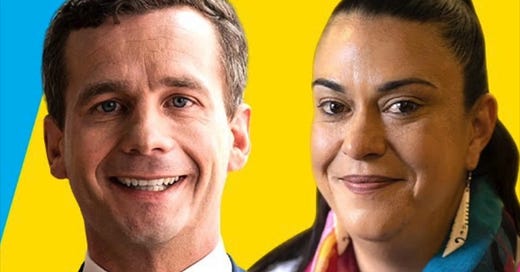



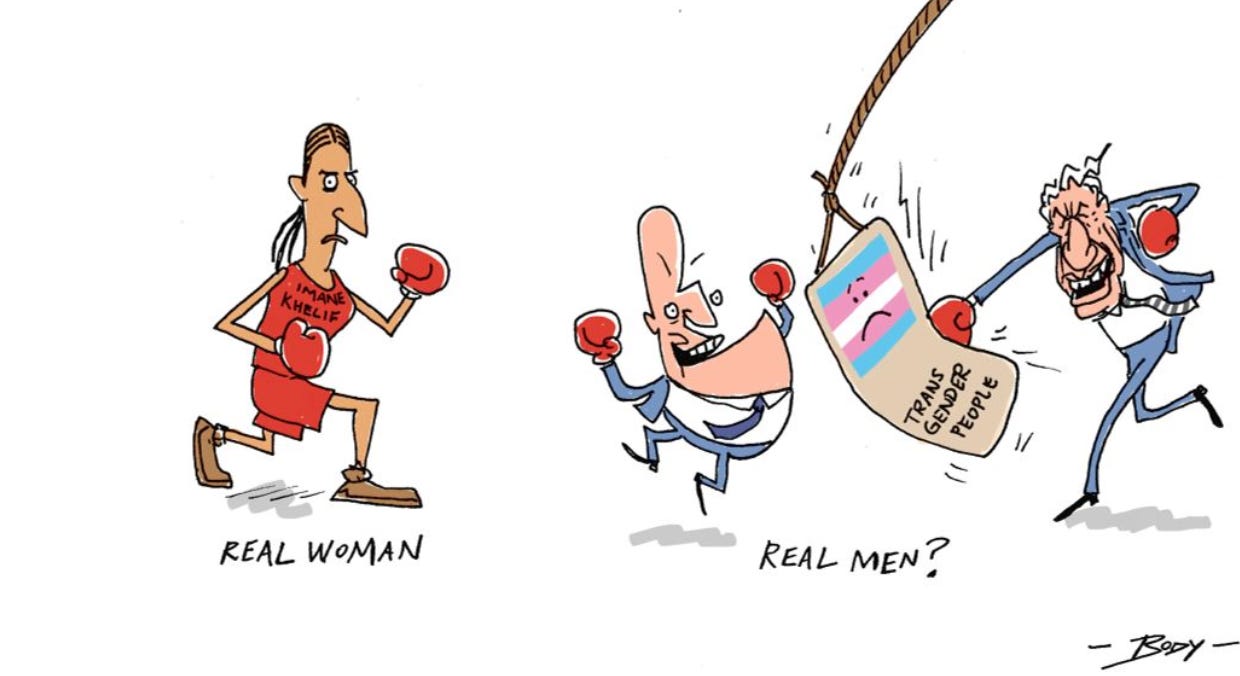
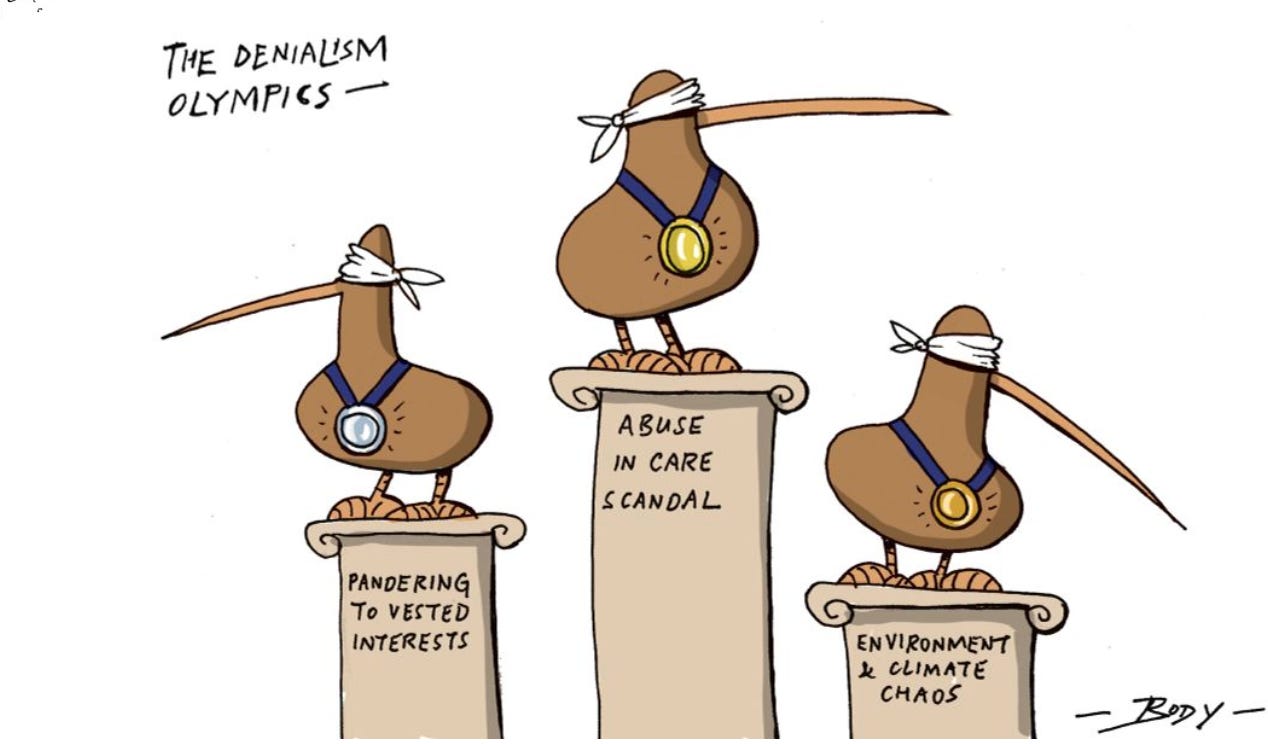

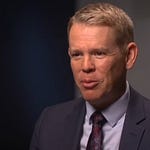

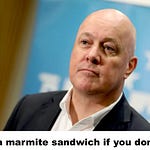
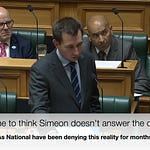

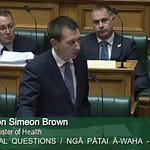

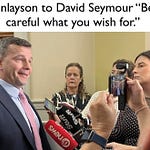
Share this post